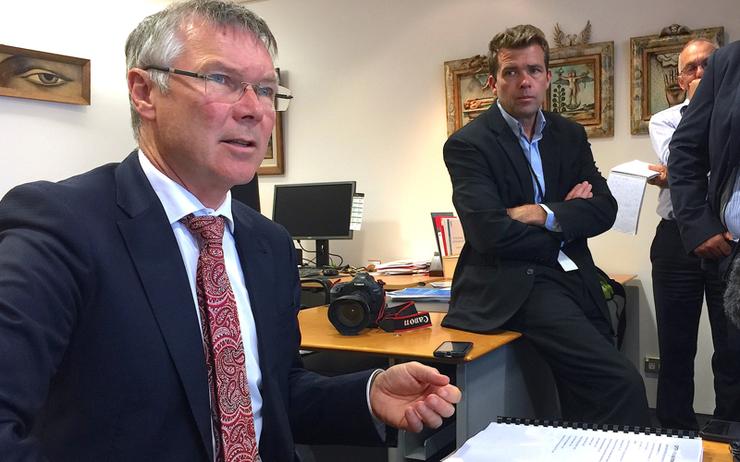Creating Regional Planning Committees to take over local councils’ planning responsibilities will only result in higher building costs, more red tape, no local control and more co-governance, the New Zealand Taxpayers’ Union says

Under the Government’s plan to cut red tape created by the Resource Management Act, which has driven a housing and infrastructure crisis, three new pieces of legislation will be introduced to replace the Act.
The Natural and Built Environment and the Spatial Planning Bills are already in the select committee process, with the committee’s report due 27 June. Submissions closed 5 February.
Environment Minister David Parker says the two bills will work together to cut red tape, lower costs and shorten the time it takes to approve new homes and key infrastructure projects.
“More than 100 RMA plans will reduce to just 15 regional-level plans across the country. The time taken to prepare them will reduce from 10 years under the current system to a maximum of four years.”
What this means is, like with Three Waters, decision-making powers will be stripped from local councils and centralised. Fifteen co-governed, unaccountable Regional Planning Committees will dictate the planning rules for houses, businesses, farms and the environment. At this rate there won’t be much left for local councils to do.
For taxpayers, the proposed regime is even worse than the RMA. The legislation’s contradictory objectives and undefined Treaty obligations will open up the new authorities to constant court action. The result is higher costs and more red tape, making it harder for New Zealanders to get things done, meaning we all end up poorer.
A petition has been launched by the New Zealand Taxpayers’ Union calling for the new Regional Planning Committees to be scrapped based on the following arguments.
-
No local control
A democratically elected local council may only have a single representative on a Committee of 20 or more representatives.
For example, decisions on a new housing development in Waitaki may be taken by a Committee in Christchurch where there is only one representative from Waitaki.
Federated Farmers warn that this will “reduce democratic engagement” while Greater Wellington Regional Council argues that “the… Committees have little democratic accountability and risk side-lining regional council functions”.
These Committees must also produce a plan for the whole region that complies with a National Planning Framework dictated by a Minister sitting in the Beehive. A local council can then only grant consents if they adhere to this plan.
Castalia contends that the increase in centralisation will “increase the likelihood of errors”.
-
Higher building costs
These new rules and plans will give far more grounds to object to the granting of a resource consent.
Consents will also only be granted for 10 years, which Federated Farmers argue is “not long enough to provide investment certainty for investors to make meaningful decisions”.
Councils are also likely to be even more risk-averse than they are now given the presumption in favour of environmental protection.
The Chief Justice of the Supreme Court also warns that “extensive legislative reform is usually followed by a period in which the meaning and effect of the new legislation is litigated through the courts”. This will likely come with a significant legal bill and result in higher costs of development. This new bureaucracy will have to be paid for by ratepayers, despite councils having next to no control over what these Committees do and no way of opting out.
-
More red tape
The Committees are required to consider 18 ‘system objectives’ such as affordable housing, reducing greenhouse gas emissions, and promoting a variety of land uses.
The Committees must “actively promote the[se]outcomes” along with four other decision-making principles such as “integrated management of the environment”. The legislation does not prioritise these objectives but rather gives that power to the Minister to decide.
Business NZ argues that having this means that there is “little or no ability to make cost/benefit decisions in terms of trade-offs between potentially competing, or in some cases even conflicting, system outcomes.”
If the Minister’s prioritisation is unclear, the default requirement is to exercise caution and favour environmental protection over all other factors.
-
Unconstitutional co-governance
A minimum of two unelected iwi and hapū representatives will be on each of these Committees, but the composition must be mutually agreed with councils.
A recent Waitangi Tribunal report argued that 50/50 co-governance should be required on these Committees in order to comply with the Treaty.
The new National Māori Entity will put pressure on the new Committees to ensure they abide by Treaty principles. The Entity can also review decisions anyone made by any person or body acting under these new laws, including the Environment Court, which the Supreme Court Chief Justice, Helen Winkelmann, has warned is “inconsistent with New Zealand’s constitutional arrangements”.
The local iwi and hapū can issue statements on Te Oranga o te Taiao – or the natural wellbeing of the environment – to the Committees for which there is no provision for appeal in the new laws. The New Zealand Initiative warns that such statements are “untested, undefined and unpredictable”.
How will it work in practice?
- Building or Adapting Your Home:
- Central Planning Committees will decide where and how you can build and make changes to your home. These Committees will have to promote 18 competing ‘system outcomes’ that are ill-defined and create complexity. This would likely mean decades of legal challenges before there is any certainty around what you can and cannot do to your own property.
- The National Planning Framework must also comply with the Emissions Reduction Plan, which the Federated Farmers have warned could see the “Committees implementing rules requiring residential buildings to reduce emissions (presumably reduce use of natural gas for heating and cooking).”
- If you don’t like a decision made by these unelected Committees, you won’t be able to vote them out.
- Major Projects:
- The New Zealand Taxpayers’ Union believes the proposed laws are vague, complex and often contradictory. Industry-leading organisations have expressed strong concerns that it will become near impossible to undertake any major infrastructure development if these law changes go through.
- The Electricity Sector Environment Group warns that the proposals would mean it would be significantly more difficult to get consent for major renewable energy projects such as wind, hydro and geothermal power and therefore means “consumers would ultimately pay more for power from existing generation sources, as well as higher prices for power from new generation”.
- Decisions will also be taken far away from the communities they affect. For example, whether a new geothermal power plant in Taupō gets consented will likely be decided by unaccountable bureaucrats in Hamilton.
- Environment:
- The New Zealand Taxpayers’ Union thinks the conflicting objectives in the proposals will end up leading to worse environmental outcomes than under the status quo.
- With a law change as significant as this, it is important that it is done well to ensure that it achieves its intended outcomes. The Commissioner for the Environment recommended against rushing the proposals through before the election due to their “failure to ensure that environment outcomes are of primary importance through the addition of a raft of competing additional outcomes.” The Government has said it wants to proceed anyway.
- The proposed laws lack the ability to efficiently and effectively reduce things like water and air pollution. Kevin Counsell, an expert in environmental economics has warned the Government’s approach “seems likely to make it even more difficult for externalities to be internalised.” Without ensuring that those who pollute bear the cost of doing so, environmental outcomes are likely to get worse.
- Businesses:
- These Committees will create 30-year plans to determine where you are allowed to do certain activities. If land is designated as an area specified for a particular kind of farming, for example, it will be very difficult to change the land use to something else.
- According to Contact Energy, the proposals “simply provide more ammunition than ever before to frustrate and stall, obfuscate and delay critical investment”.
- The New Zealand Taxpayers’ Union thinks that the end result is a New Zealand where it is even more difficult, and expensive, to do business or build quality infrastructure.








